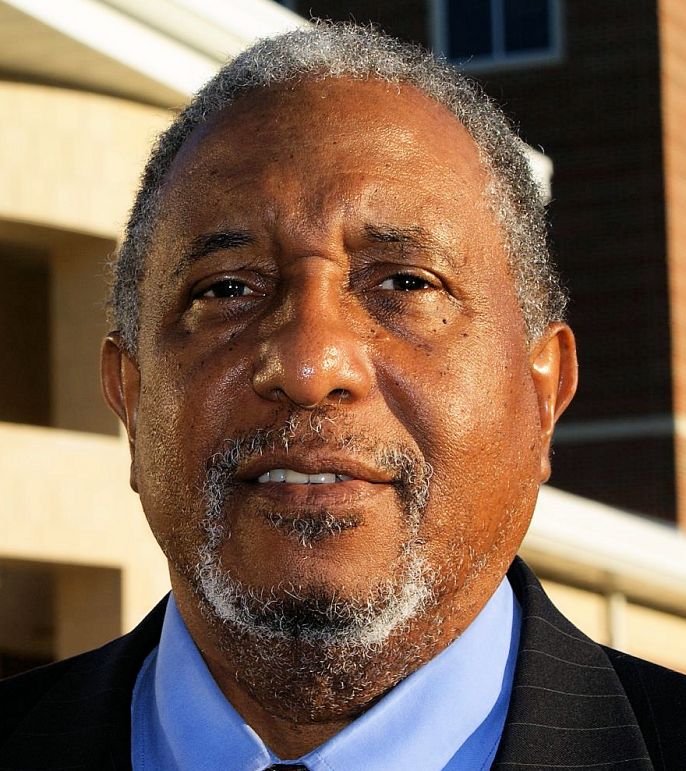



A Civil Rights Movement hero and nonviolence activist for over fifty years, Dr. LaFayette was a co-founder and leader of the Student Nonviolent Coordinating Committee Nashville Sit-ins, a courageous Freedom Rider, an associate of Dr. King in the Southern Christian Leadership Conference, and national coordinator of the Poor People’s Campaign. An ordained minister, professor, educator, lecturer, he is recognized nationally and around the world as an authority on the strategy on nonviolent social change.
Dr. Lafayette was born in Tampa, Florida, on 19 July 1940. In 1958 he moved to Nashville to attend American Baptist Theological Seminary. As a freshman, Lafayette began attending weekly meetings arranged by James Lawson, a representative of the Fellowship of Reconciliation who had contacted King during the Montgomery bus boycott. Throughout 1958 and 1959, in partnership with Nashville’s SCLC affiliate, Lawson taught nonviolence techniques to Lafayette and his fellow Nashville students, including John Lewis, James Bevel, and Diane Nash. Energized by Lawson’s classes and a weekend retreat at the Highlander Folk School, Lafayette and his friends began conducting sit-ins at segregated restaurants and businesses in 1959. When Ella Baker, under the auspices of SCLC, organized a conference of students on Easter weekend in 1960, Lafayette attended this conference which gave birth to SNCC.
Prior to the Supreme Court’s 1960 ruling in Boynton v. Virginia declaring segregation in interstate travel facilities unconstitutional, Lafayette and Lewis integrated a bus on their way home from seminary by sitting at the front and refusing to move. Months later, in 1961, he answered a Congress of Racial Equality announcement recruiting students to participate in the Freedom Rides. Although unable to join the first ride because his parents refused to permit him to participate, Lafayette and other Nashville students volunteered to continue the rides after the first group of freedom riders was attacked in Alabama. In Montgomery, Lafayette’s group was attacked by members of the Ku Klux Klan. King met with Lafayette, Nash, and Lewis and then negotiated on their behalf with the White House and the Department of Justice to ensure their protection in Montgomery and a military escort on their continued journey to Mississippi.
In 1962, Lafayette became the director of SNCC’s Alabama Voter Registration Project. The following February, he and his wife, Colia, began running voter registration clinics in Selma, Alabama. In the summer of 1963, the pair was hired by the American Friends Service Committee to begin testing nonviolent methods in Chicago. When King launched SCLC’s Chicago Campaign, he appointed Lafayette, still there in 1966, to help plan and execute the campaign’s direct action program.
After King hired him as SCLC’s program coordinator in 1967, Lafayette took on responsibility for the 1968 Poor People’s Campaign. Following King’s assassination, Lafayette continued to work on the campaign with Ralph Abernathy.
Lafayette received his MEd from Harvard University in 1972 and a doctorate in 1974. He served as a scholar at the King Center. After teaching at several universities, he was named president of his alma mater, American Baptist Theological Seminary, in 1993. In 1998, he became the director of the Center for Nonviolence and Peace Studies at the University of Rhode Island. In January of 2009, Dr. LaFayette accepted an appointment at Emory University in Atlanta as a Distinguished Senior Scholar-in-Residence at the Candler School of Theology, where he now works with their Religion, Conflict, and Peacebuilding program, and the Religions and Human Spirit Cross-cutting Initiative. His book In Peace and Freedom, My Journey in Selma, co-authored with Kathryn Lee Johnson, was published in 2013. Dr. LaFayette is also the chair of the national board of the Southern Christian Leadership Conference (SCLC).
Dr. LaFayette's book In Peace and Freedom is available from Kentucky Press and Amazon.
Back to top